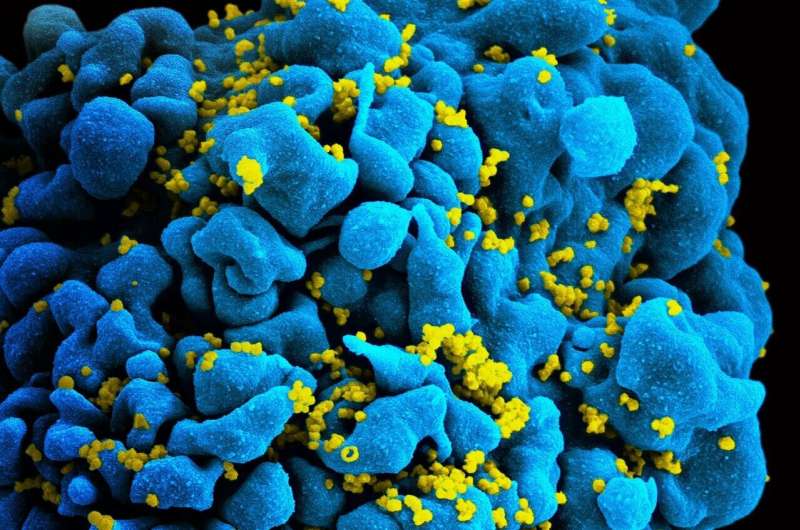Longer neutrophil lifespan may contribute to HIV-associated intestinal inflammation

The increased survival of white blood cells called neutrophils is associated with alterations in the intestinal microbiome of HIV-infected individuals, according to a study published April 11 in the open-access journal PLOS Pathogens by Nichole Klatt of the University of Miami, and colleagues. Moreover, the findings suggest that Lactobacillus bacteria, which are commonly in probiotics, may reduce neutrophil lifespan, and could be an effective therapeutic strategy to reduce intestinal inflammation in HIV-infected individuals.
HIV infection results in chronic immune activation that leads to increased risk of other diseases and premature death, and this has been linked to gastrointestinal damage in infected individuals. Pathogen-fighting immune cells called neutrophils have been implicated in tissue damage in other gastrointestinal diseases, but it has not been clear whether neutrophils contribute to gastrointestinal damage in HIV infection. In the new study, Klatt and colleagues addressed this gap in knowledge by quantifying neutrophils in relation to other white blood cells in the gastrointestinal tissues of HIV-infected individuals receiving treatment.
The findings show that neutrophils in the gastrointestinal tract of HIV-infected individuals have a longer lifespan. Therefore, increased neutrophil lifespan may contribute to neutrophil accumulation in colorectal biopsy tissue, potentially implicating neutrophil lifespan as a new therapeutic target for intestinal inflammation in HIV infection. The results also suggest that different bacteria that naturally reside in the gastrointestinal tract can alter neutrophil lifespan, and that changes in the relative abundances of these bacteria in HIV infection may contribute to increased neutrophil lifespan. Specifically, Lactobacillus species uniquely decrease neutrophil survival and neutrophil frequency, which could have important therapeutic implications for reducing neutrophil-driven inflammation in HIV and other chronic inflammatory conditions.
"These data were so striking because that they clearly implicate neutrophil lifespan as a potential target to reduce intestinal inflammation in HIV infection," notes Klatt. "Neutrophil lifespan is increased in many different chronic diseases, and strategies targeting neutrophil lifespan are being investigated to reduce neutrophil-driven inflammation. However, this connection had not previously been investigated in the context of HIV infection."
"I think one of the most exciting and interesting findings was that Lactobacillus species can override neutrophil survival signals and reduce neutrophil lifespan and numbers," states first author Tiffany Hensley-McBain. "Overall, we believe these data have important and widespread implications for discovering new therapeutics for neutrophil-driven inflammation in not only HIV infection, but many chronic inflammatory diseases."
More information: Hensley-McBain T, Wu MC, Manuzak JA, Cheu RK, Gustin A, Driscoll CB, et al. (2019) Increased mucosal neutrophil survival is associated with altered microbiota in HIV infection. PLoS Pathog 15(4): e1007672. doi.org/10.1371/journal.ppat.1007672




















